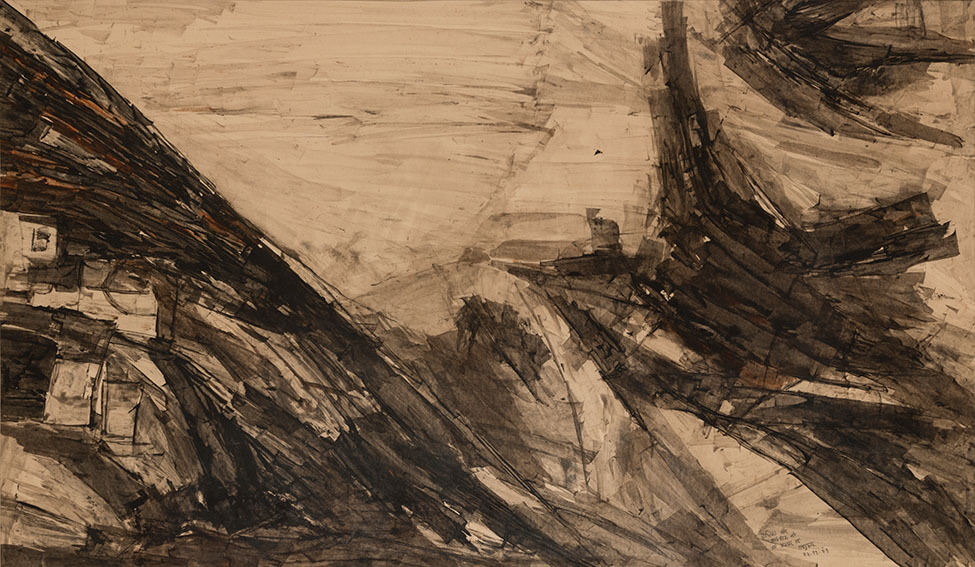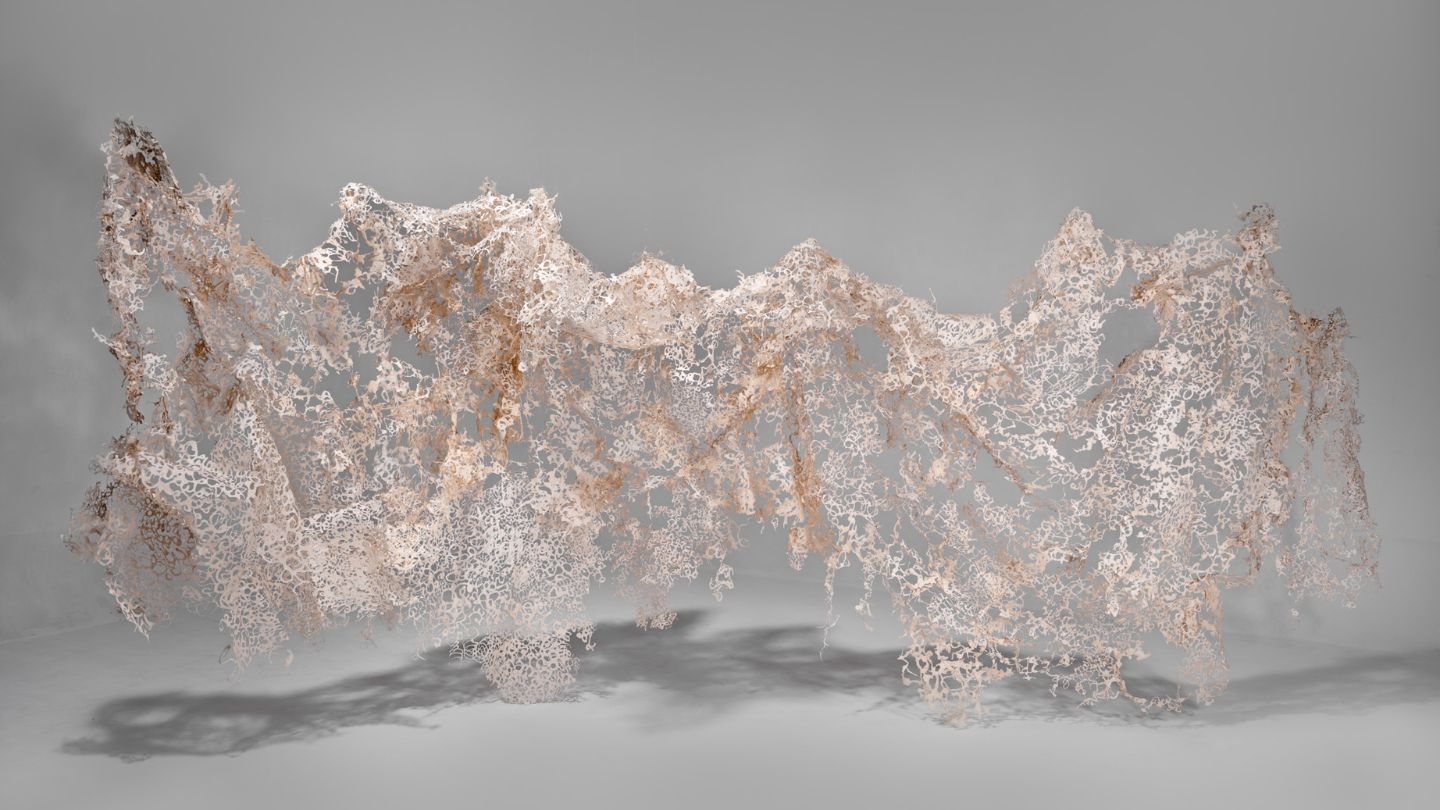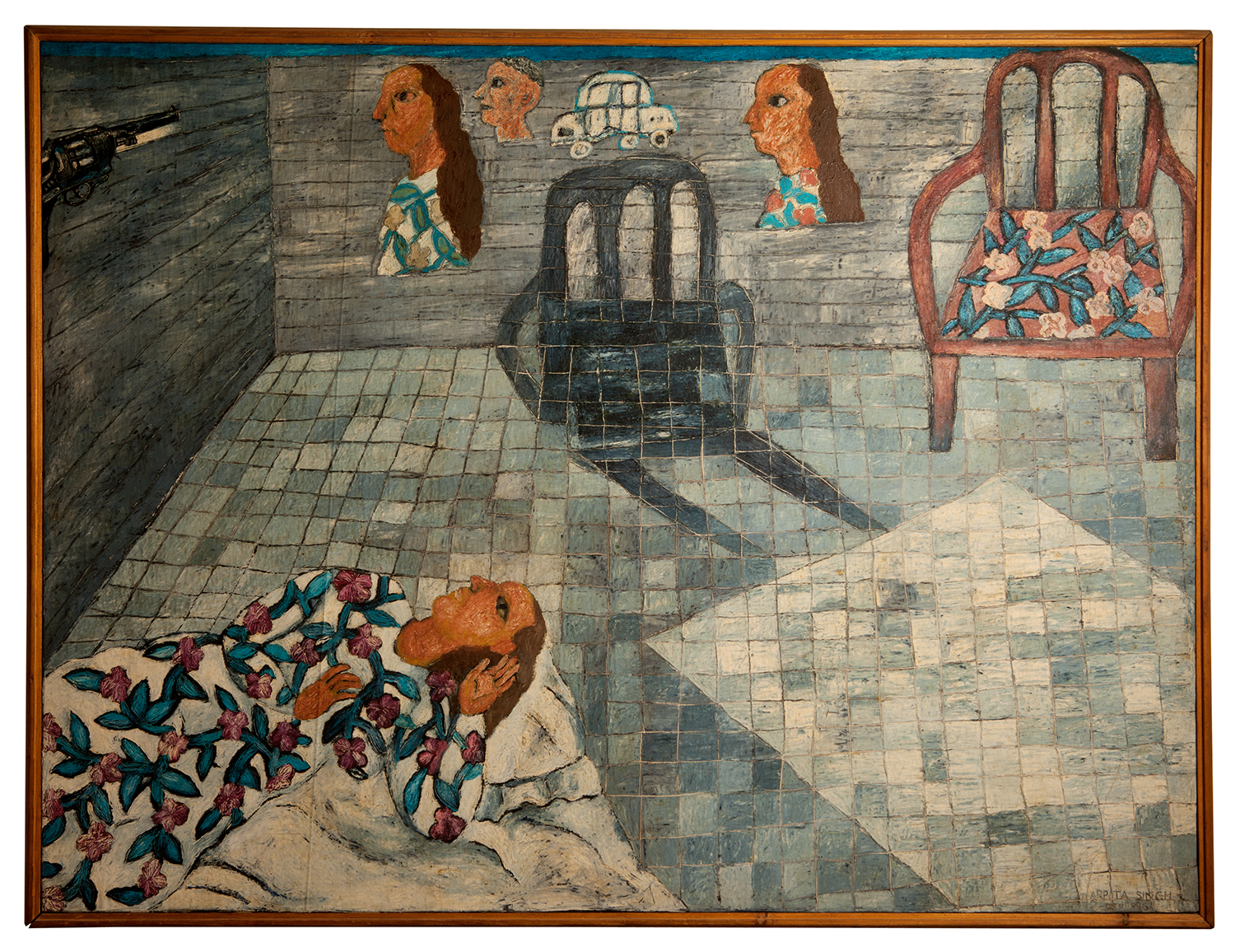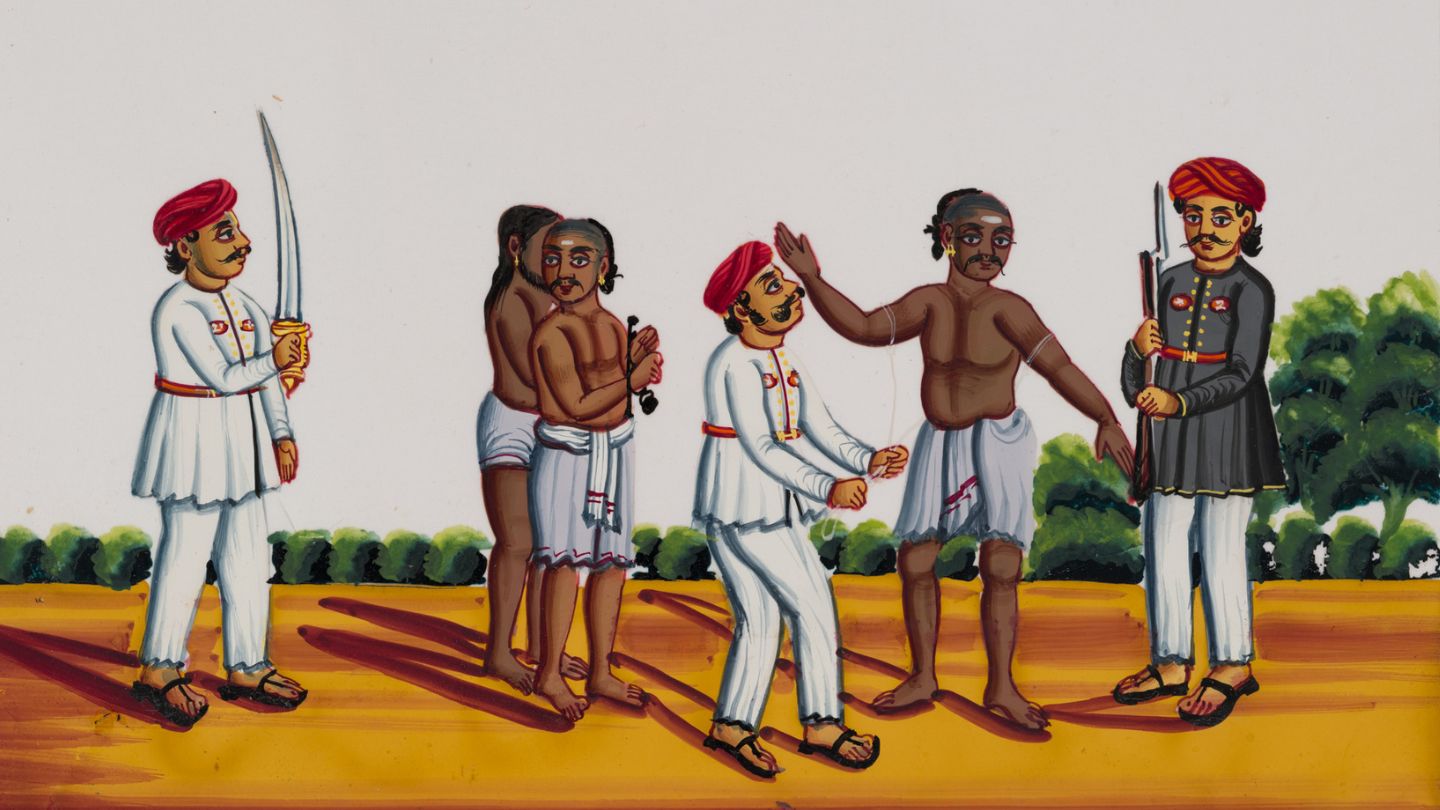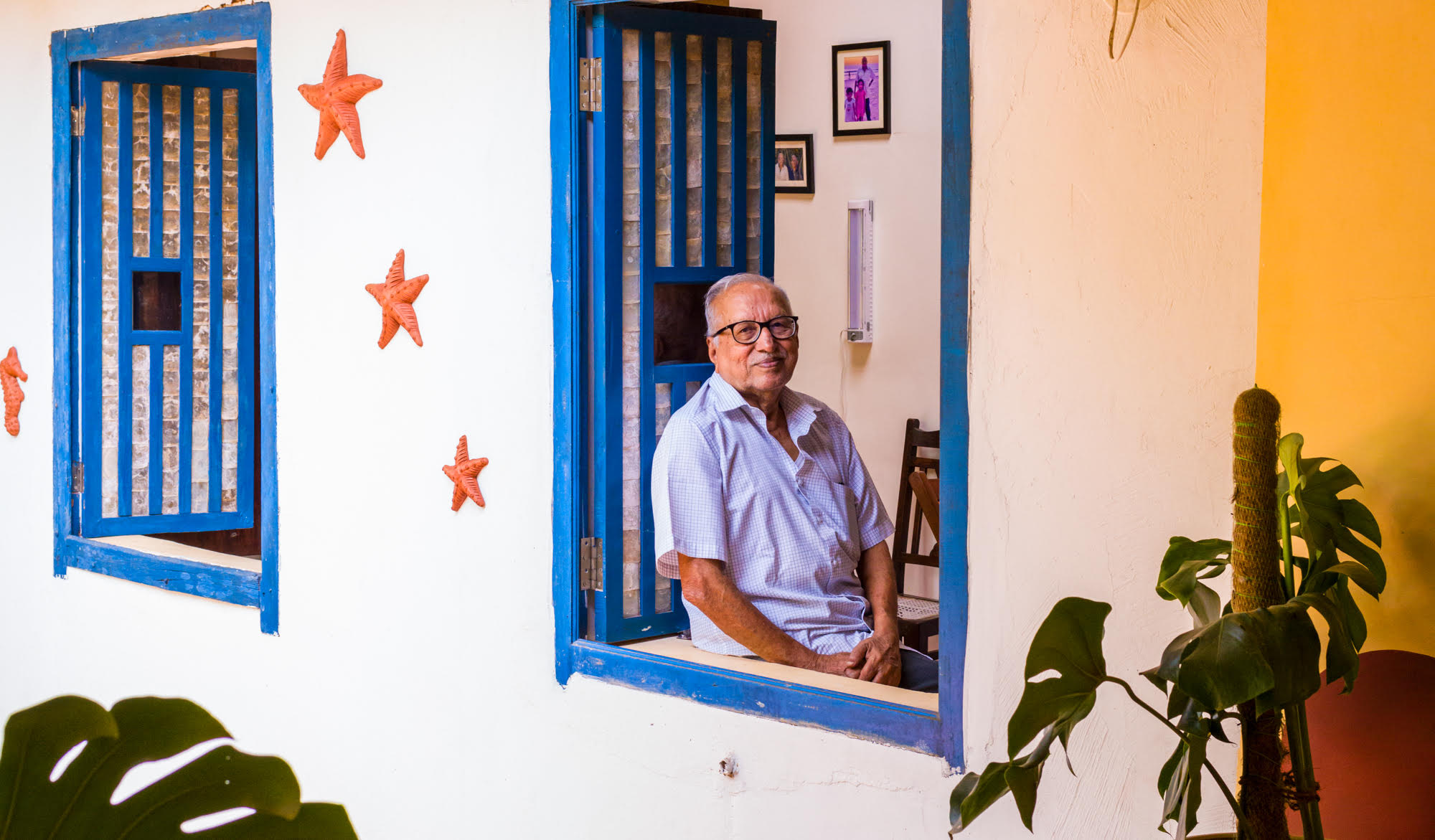Blogs
Art as a Storyteller
Anu Shree Murali
Delve into MAP’s exquisite collection with Director, Kamini Sawhney and explore the stories behind artworks hailing from different eras.
“Only through stories can invisible or inarticulate or silent beings speak to us; it is they who allow the past to reach out to us.”
Amitav Ghosh
Going through a wrinkled page of an anthology of Rabindranath Tagore’s poetry, my mind snaked back along the roads through which this book has travelled on its journey to me. Published in 1943 in Chittagong, the book had been owned by six different families before it reached the second hand bookstore in Chennai where my mother found it. Lost in a nostalgia that was only partially my own, I was reminded of all the people I had shared this object with and all the stories hidden in it.
Remnants from the past, several inanimate things have the power to transport us across eras of shared histories, identities and lost lands. Reminded of this very idea, I found myself browsing through this small piece of my own history.
Having been introduced to a beautiful brocade skirt by Kamini Sawhney at MAP’s collection walkthrough on the evening of Friday, 25 June, I was enamoured by the ability of histories and stories to disguise themselves as pieces of art. Concealed within this one skirt from the 20th century are stories of the craftsmen whose handiwork made the rich intricate embroidery possible, tales of national pride showcased in secrecy – like a subtly woven map of undivided India on a Banarasi skirt, and the narrative of colonialism and how it impacted something as intimate as clothing.
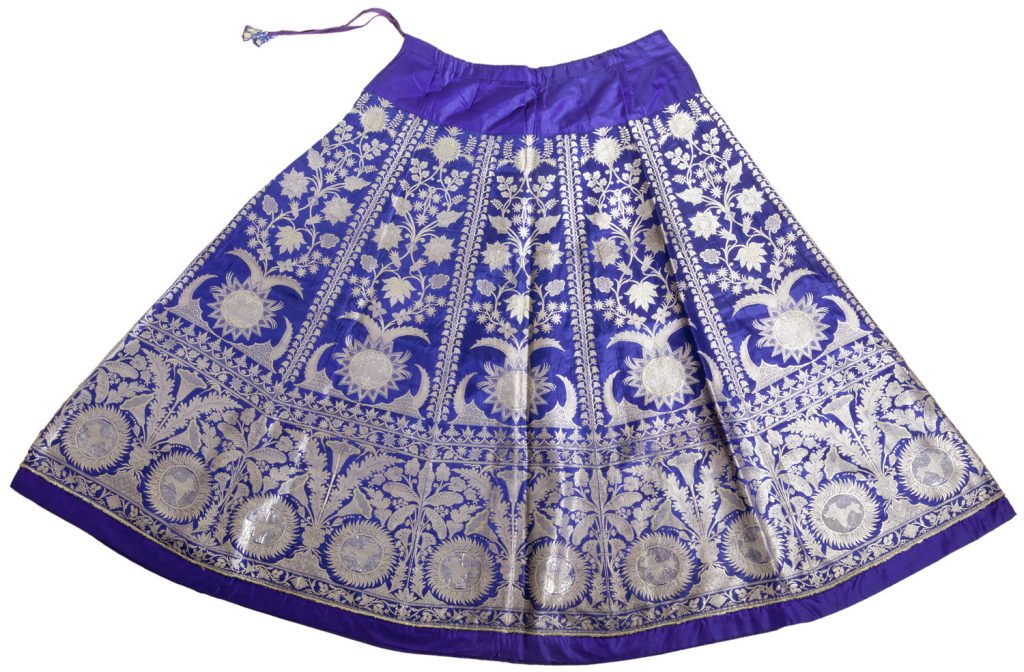
Brocade Skirt, c. 1920, Silk brocade with silver thread, TXT.00033
In a way it seems that the point of the Art as a Storyteller walkthrough was to allow people to immerse themselves in someone else’s history. Hosted by MAP and Art Fervour, it meant to introduce the audience to some of the highlights from MAP’s collection, and in doing so it also reminded me of all the lovely lives I haven’t lived yet.
While taking the audience through the museum’s collection, MAP’s Director Kamini Sawhney narrated the stories that each of these works of art held within themselves. From secret nationalist fashionistas to Anoli Perera’s photographs that challenge the male gaze while somehow simultaneously echoing a bygone era, there were stories to be uncovered with every piece; a little something for every curious onlooker.
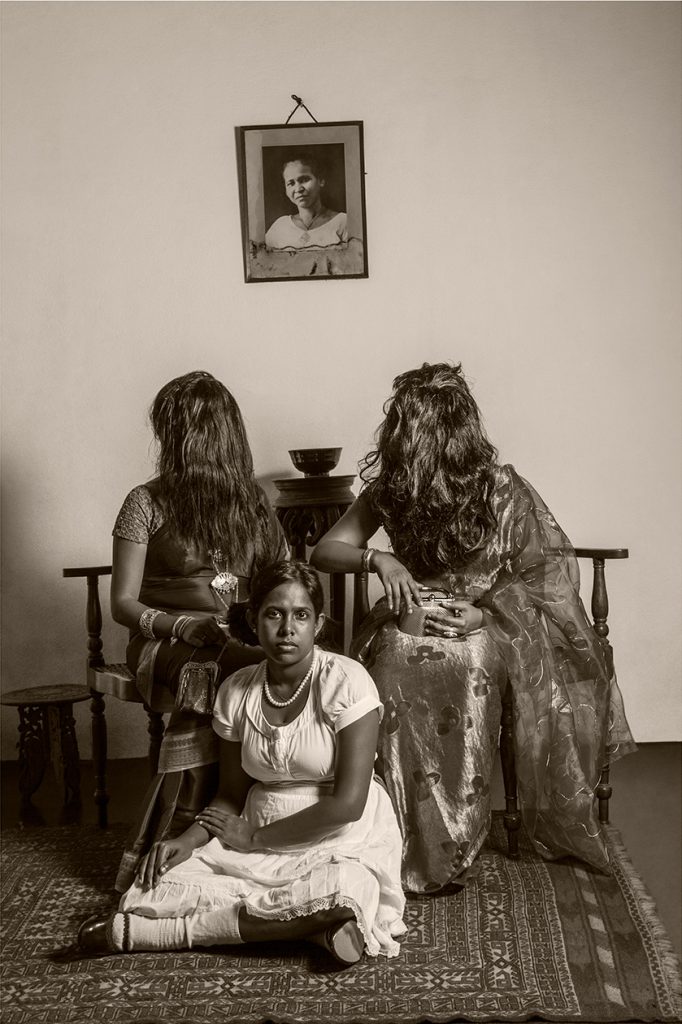
I Let My Hair Loose: Protest Series I by Anoli Perera, 2010-2011, Archival pigment print, PHY.12127
It brought to the forefront the purpose behind these objects’ importance – the simplicity with which they contain a multitude of emotions that define us. Each object, each piece of art had a story to tell, a history to narrate, whether it is something personal, like the story of the boy with his outstretched arms in Raghu Rai’s photograph Ugrasen ki Baoli or the bidriware hookah bases that were perhaps a part of a royal household.
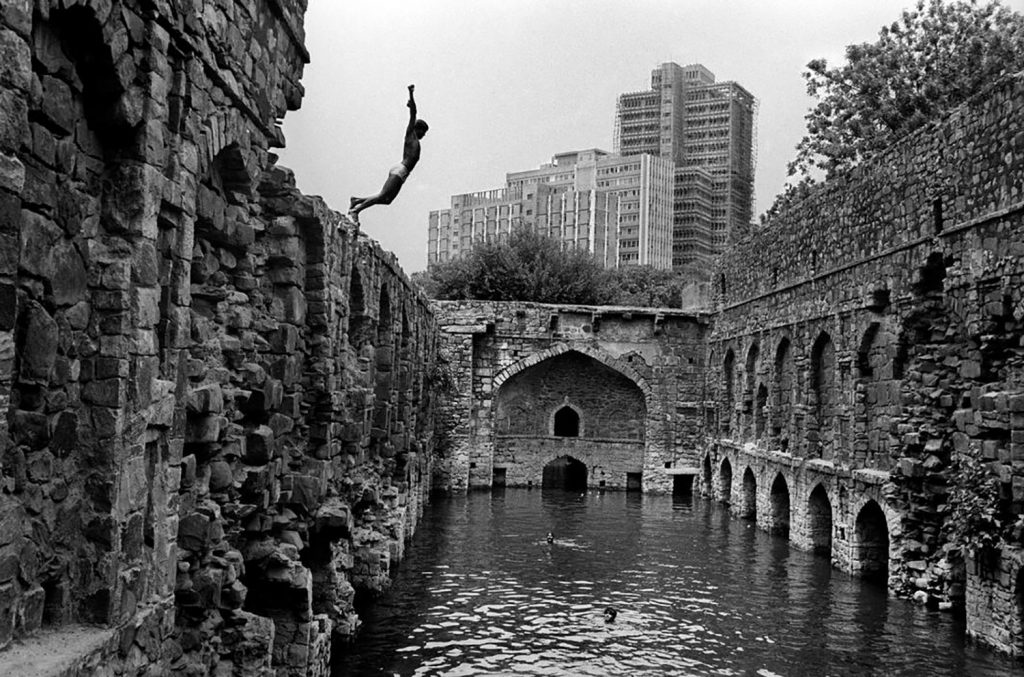
Ugrasen Ki Baoli by Raghu Rai, 1971, Silver gelatin print, PHY.07081
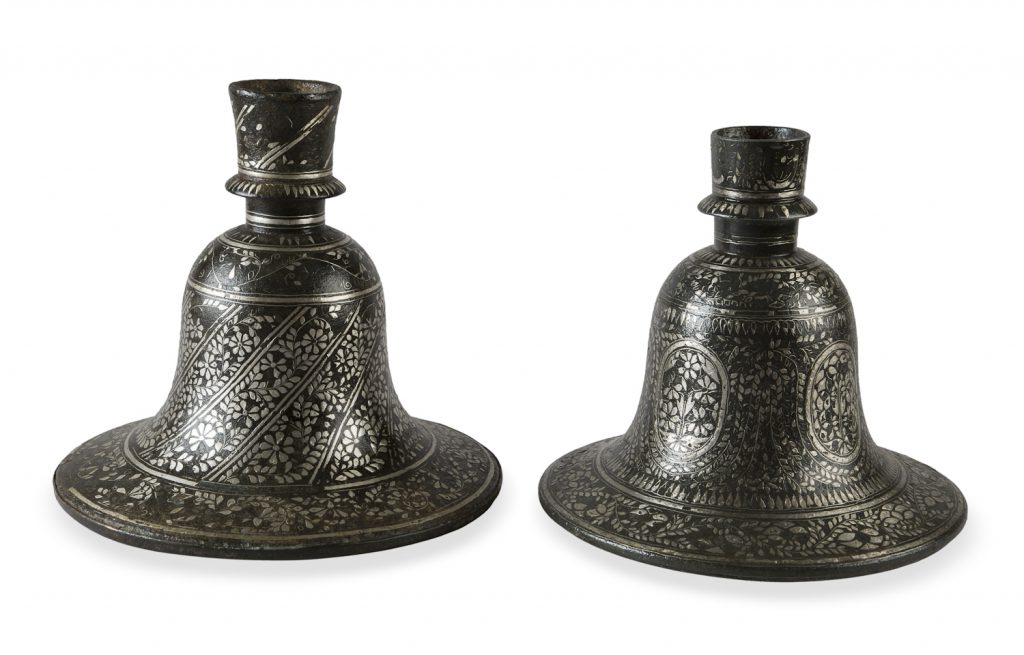 Bidriware Hookah base, c. 19th Century, Alloy inlaid with silver, SCU.00638
Bidriware Hookah base, c. 19th Century, Alloy inlaid with silver, SCU.00638
At the same time, my attention also went towards the marks that memories and stories left behind on these pieces of art. For instance, the faith and devotion that continue to echo through a Patachitra scroll from 20th century Birbhum, or the experiences of living in an overwhelmingly loud and busy city like Mumbai that bleeds out of Jitish Kallat’s 1997 artwork Bulb Fiction-Strange Enlightenments.
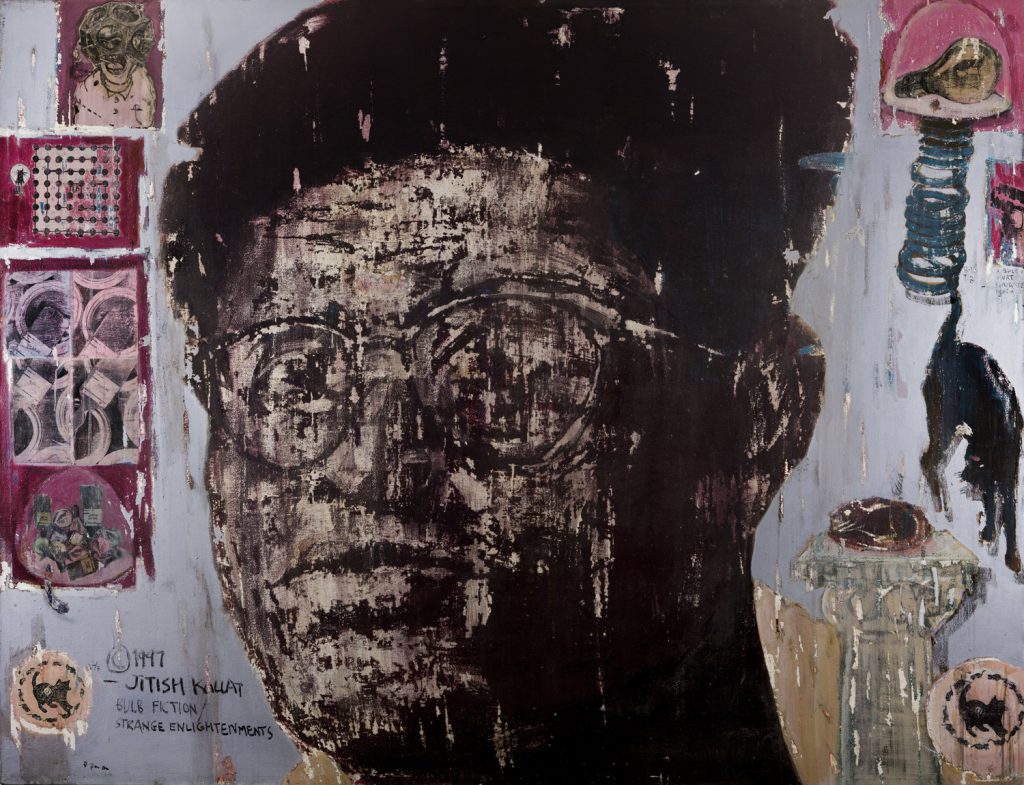
Bulb Fiction-Strange Enlightenments by Jitish Kallat, 1997, Acrylic on canvas, MAC.00456
Seamlessly narrated, the walkthrough gave me a glimpse into the distinct chapters of Indian art and heritage. But more than that, it was a wonderfully constructed visual montage of stories that these art pieces have been craving to tell us for so long.
Blurring the boundaries between high art and low art, Sawhney gave voice to these gentle storytellers, letting them unfurl tales from our past, helping us understand our identities and our shared histories. It was a touching reminder that these works of art are the only tangible connection we have with their creators, owners and a bygone civilisation at large. The narratives they portrayed is what connects them to humanity and makes it so beautiful.
So, go on, take a break from the humdrum of the present for a trip across history, like I did and listen carefully to the stories art has to tell with Kamini Sawhney and Art Fervour on MAP’s Watch section.
All images are courtesy the Museum of Art & Photography, Bangalore.
Anu Shree Murali is a researcher at Art Fervour, a history graduate and a filter coffee aficionado who is constantly lost in all things antique and mysterious.
